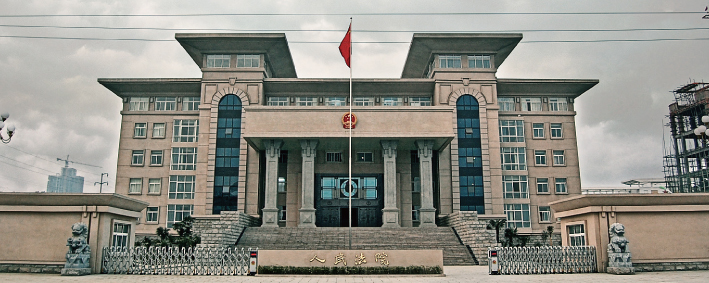 |
CCCH9041 China: Culture, State and Society
|
CCCH9030 Modernizing China’s Constitution: Failures and Hope
Course Description
This course examines from a historical perspective the legal transformations in 20th century China and developments towards the rule of law. First, the key concepts of the rule of law are introduced in a straightforward way suitable for students from all backgrounds. The course then examines the Chinese legal tradition up until the late Qing dynasty, including the legal and constitutional reforms introduced in response to the challenge of the West. This is followed by looking at the continuation of the late Qing legal reforms in the Republic of China, including the move to one-party rule under the Nationalist Government, legal and constitutional reforms in Taiwan, and the development of the rule of law there.
This course also covers legal thought and legal developments in the People’s Republic of China after 1949. The final topic is the modernization of the Chinese legal system in the era of “reform and opening”, which considers the legal reforms that have accompanied the move from a socialist planned economy to a market economy, constitutional reforms to protect property and human rights, and the legal practice of “One Country, Two Systems” in the Special Administrative Regions of Hong Kong and Macau.

Course Learning Outcomes
On completing the course, students will be able to:
- Describe China’s legal traditions from a comparative perspective and appraise various legal reforms in China since the late Qing Dynasty.
- Identify the factors affecting the development of the rule of law in the Republican period and in Taiwan.
- Reflect on and discuss the era of lawlessness and the impact of the Cultural Revolution (1966–1976) on the rule of law in post-1949 China.
- Critically evaluate the legal developments in post-Mao China from sociolegal, sociopolitical and comparative perspectives.
Offer Semester and Day of Teaching
Second Semester (Wed)
Study Load
| Activities | Number of hours |
| Lectures | 24 |
| Tutorials | 10 |
| Reading / Self-study | 50 |
| Assessment: Essay writing | 30 |
| Assessment: Group project (incl preparation, reporting writing and presentation) | 20 |
| Total: | 134 |
Assessment: 100% coursework
| Assessment Tasks | Weighting |
| Term paper | 50 |
| Group project | 25 |
| Participation in tutorials / group discussions | 25 |
Required Reading
The required readings are as follows. Students will receive further guidance on these materials during the lectures and tutorials. Additional readings may be recommended on the Moodle page during the teaching semester.
- Bingham, T. (2007). The rule of law. Cambridge Law Journal, 66(1), 67-85.
- Bui, N. S. (2017). Sun Yat-sen’s constitutionalism. Journal of Constitutional History, 32(2), 157-179.
- Chang, W. J. (2016, November 18). Origins of Chinese jurisprudence. [Lecture at the Faculty of Law, University of Hong Kong]
- Chen, A. H. Y. (1999). Confucian legal culture and its modern fate. In R. Wacks (Ed.), The New Legal Order in Hong Kong (pp. 505-533). Hong Kong: Hong Kong University Press.
- Chen, A. H. Y. (2007). A tale of two islands: Comparative reflections on constitutionalism in Hong Kong and Taiwan. Hong Kong Law Journal, 37, 647-688.
- Chen, A. H. Y. (2010). Legal thought and legal development in the People’s Republic of China 1949-2008. In J. Gillespie & A. H. Y. Chen (Eds.), Legal Reforms in China and Vietnam (Chap. 3, pp. 51-77). London: Routledge.
- Chen, A. H. Y. (2016). China’s long march towards rule of law or China’s turn against Law? Chinese Journal of Comparative Law, 4, 1-35.
- Chen, A. H. Y. (2021). The Changing Legal Orders in Hong Kong and Mainland China. Hong Kong: City University of Hong Kong Press. [Chap. 8 “Chinese cultural tradition and modern human rights” (pp. 193-202)]
The required readings are as follows. Students will receive further guidance on these materials during the lectures and tutorials. Additional readings may be recommended on the Moodle page during the teaching semester.
- Wang, T. -S. (2002). The legal development of Taiwan in the 20th century: Toward a liberal and democratic country. Pacific Rim Law and Policy Journal, 11, 531-559.
Further reference
- Chen, A. H. Y. (2021). The Changing Legal Orders in Hong Kong and Mainland China: Essays on ‘One Country, Two Systems’. Hong Kong: City University of Hong Kong Press.
Course Co-ordinator and Teacher(s)
| Course Co-ordinator | Contact |
| Professor A.H.Y. Chen Department of Law, Faculty of Law |
Tel: 3917 2943 Email: albert.chen@hku.hk |
| Teacher(s) | Contact |
| Professor A.H.Y. Chen Department of Law, Faculty of Law |
Tel: 3917 2943 Email: albert.chen@hku.hk |
| Dr D.Y.K. Kwok Department of Law, Faculty of Law |
Tel: 3917 2966 Email: davkwok@hku.hk |
| Professor E. Ip Department of Law, Faculty of Law |
Tel: 3917 2961 Email: ericcip@hku.hk |

